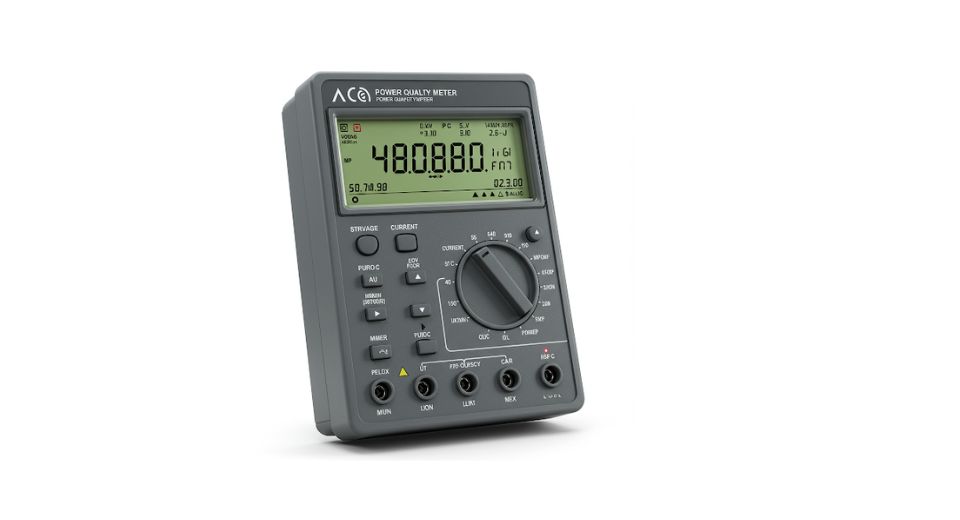
Mar 26, 2025

The Global Power Quality Meter market has met the growing importance of monitoring and controlling electricity efficiency in industries, as indicated by Metastat Insight. The stable and uninterrupted supply is in high demand; hence, businesses and utility providers have relied on advanced solutions for measurement of electrical fluctuations, detecting anomalies, and managing energy optimally. The devices evaluate voltage levels, flow of currents, and harmonic distortions so that industries work towards preventing unexpected failures and maintaining continuity of operations. Modern infrastructures have come to increasingly depend on electronic equipment; hence, there is more need than ever for precise monitoring of power quality.
Global Power Quality Meter market is estimated to reach $1,835.00 million in 2025 with a CAGR of 7.6% from 2025 to 2032.
Adoption of these meters has been realized by manufacturers from different industries: industrial plants and commercial establishments. By having sophisticated monitoring systems, organizations are on the way to detecting the deviations that might otherwise result in equipment malfunctions or reduced efficiency. Electrical disturbances such as surges, sags, and transients might affect production processes, which produce a loss of money when not monitored. A lot of industries using sensitive machinery like manufacturing, health care, or data centers are more interested in risks of such events and are working towards minimizing them through improved measuring tools.
Such systems provide a structured way of energy management. Utilities are investing in technologies which, in addition to recording energy consumption, also pinpoint areas for improvement; modern metering would empower organizations to devise cleaner and cheaper ways to manage energy. Moreover, these regulatory authorities, at different levels, advocate for a consistent approach in the maintaining standard power quality. This pushes many organizations to direct their investment towards building quality monitoring tools that the industry requires.
Digitalization in the power sector has initiated an extension of intelligent monitoring systems. Smart meters, capable of collecting real-time information, provide more friendly accuracy in identifying power quality problems. With technology integrated into such innovations, irregularities can be identified for many immediate corrective actions on the part of operators. All sectors witness the continuing influence of digital transformation, and only now do companies realize that it is important to put automated solutions within their operational framework.
Therefore, it appears that sustained energy efficiency has tried to get into the domain of power quality meters that optimize resource usage, thus paving the way for increased acceptance among industries. Stable power supply is a foremost requirement within industries such as semiconductor manufacturing and medical equipment production, where precision is a must. Such industries take the risk of malfunctioning equipment and therefore loss of integrity in their processes due to undesired perturbations. Advanced monitoring tools can help businesses control power distribution consistency, which in turn, will increase productivity.
In addition, with the advent of modern software analytics, monitoring technology is setting off on a whole new level of improvement. This enables cloud-based platforms for remote access to real-time data that allows for best possible decision-making and predictive maintenance. Further strengthening the efficiency of these solutions is the ability to analyze trends and historical data. With the organizations aiming for minimum downtime and operational risk, the application of these tools is fast becoming a core component of power management strategies.
With the strengthening of power infrastructure, the role of monitoring devices is expected to be given a more significant push ahead. Urbanization and industrialization are generating energy demands, thereby necessitating utility providers to stabilize the grids. Reliable power distribution duly requires verification through standards measuring instruments, which will measure variations to the most precise degree. Incorporating intelligent systems can thus enable energy providers to manage supply fluctuations more proficiently, thereby enhancing overall service reliability.
Sustainability is now an increasing priority for industries, and the efficient use of their energy is crucial in achieving that. Businesses that are bent on reducing their carbon footprints are coming up with different ways to make energy consumption more efficient; real-time monitoring gives them a way to pinpoint less-than-useful power consumption. The realization of the need to install more advanced metering solutions is coming like a ringing bell as organizations strive to meet environmental goals. Such increasing emphasis on sustainability has driven the demand for instruments that qualify for the power quality assessment with accuracy and reliability.
Evolutionary monitoring systems have laid the foundation for the innovations that satisfy dynamically changing needs of industries. Technology is evolving, and manufacturers are bringing in solutions that feature advanced connectivity and automation capabilities. Wireless metering solutions and AI-driven analytics will shape the future of power management by aiding enterprises in developing better control over energy consumption. As industrial frameworks imbibe digital transformation, the proliferation of smart monitoring solutions will remain on the rise.
Drop us an email at:
Call us on:
+1 214 613 5758
+91 73850 57479